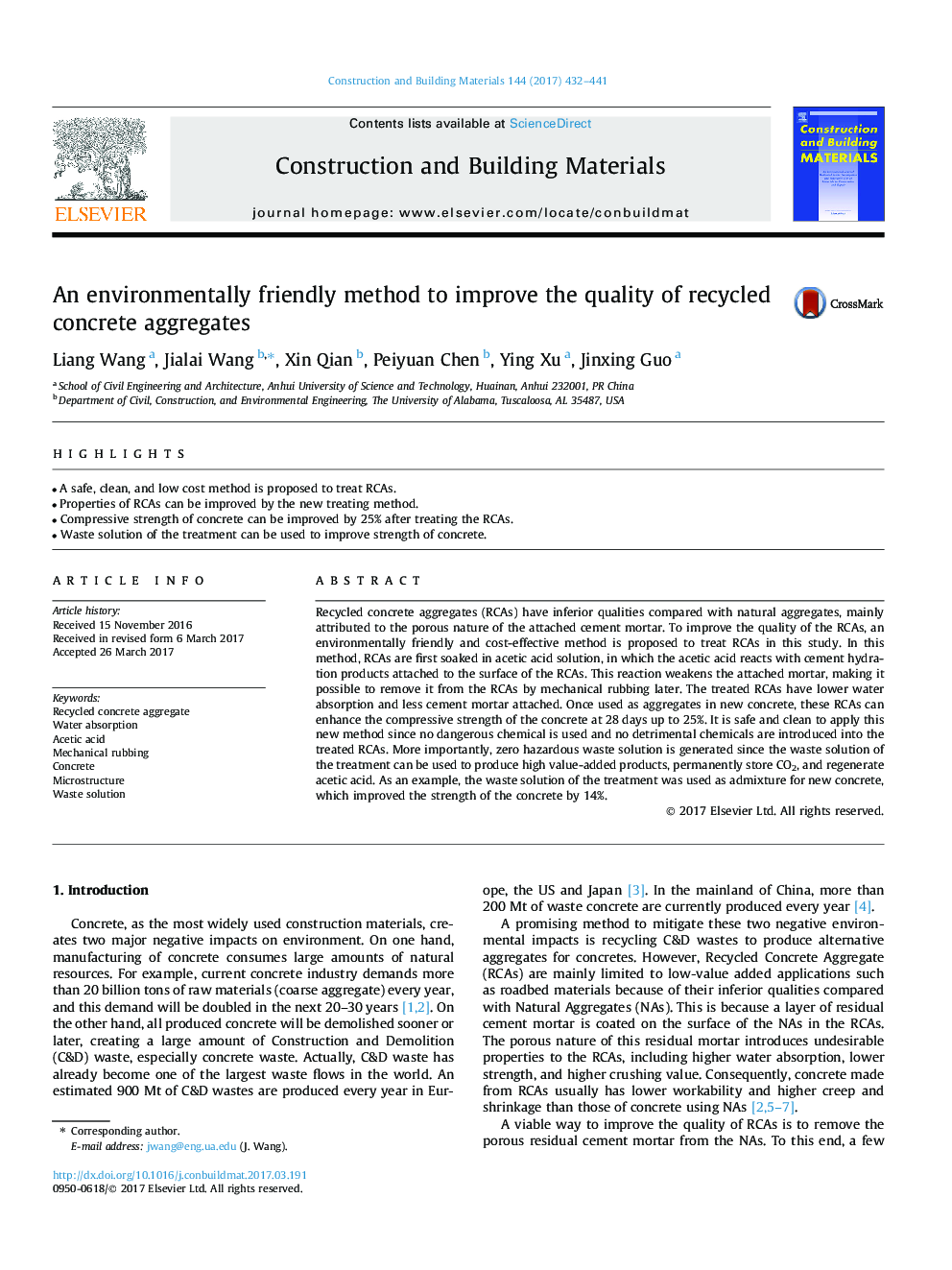| Article ID | Journal | Published Year | Pages | File Type |
|---|---|---|---|---|
| 4913180 | Construction and Building Materials | 2017 | 10 Pages |
Abstract
Recycled concrete aggregates (RCAs) have inferior qualities compared with natural aggregates, mainly attributed to the porous nature of the attached cement mortar. To improve the quality of the RCAs, an environmentally friendly and cost-effective method is proposed to treat RCAs in this study. In this method, RCAs are first soaked in acetic acid solution, in which the acetic acid reacts with cement hydration products attached to the surface of the RCAs. This reaction weakens the attached mortar, making it possible to remove it from the RCAs by mechanical rubbing later. The treated RCAs have lower water absorption and less cement mortar attached. Once used as aggregates in new concrete, these RCAs can enhance the compressive strength of the concrete at 28Â days up to 25%. It is safe and clean to apply this new method since no dangerous chemical is used and no detrimental chemicals are introduced into the treated RCAs. More importantly, zero hazardous waste solution is generated since the waste solution of the treatment can be used to produce high value-added products, permanently store CO2, and regenerate acetic acid. As an example, the waste solution of the treatment was used as admixture for new concrete, which improved the strength of the concrete by 14%.
Related Topics
Physical Sciences and Engineering
Engineering
Civil and Structural Engineering
Authors
Liang Wang, Jialai Wang, Xin Qian, Peiyuan Chen, Ying Xu, Jinxing Guo,
